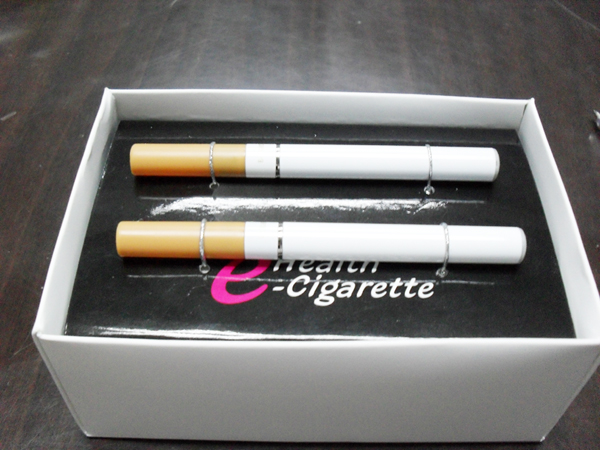NEW YORK: Vitamin E acetate, a chemical used in many E-cigarettes, may be the causative agent for vaping related respiratory diseases, according to a study which strengthens the link between the compound and lung injury.
Researchers, including those from the US Centers for Disease Control and Prevention (CDC), and The Ohio State University in the US, analysed lung fluid from 51 EVALI (E-cigarette or vaping product use-associated lung injury) patients from 16 states, and compared it to those from 99 healthy individuals.
The study, published in the New England Journal of Medicine, found vitamin E acetate in the bronchoalveolar-lavage (BAL) lung fluid from 48 of 51 EVALI patients, but not in those from healthy people.
According to the researchers, no other toxic chemical was found in the fluid from either group, except coconut oil and limonene (one EVALI patient each).
“These findings support the conclusion that vitamin E acetate is a potential causative agent of EVALI, and that is an important discovery as decisions are made about how to best regulate the rapidly evolving e-cig industry,” said study co-author Peter Shields from The Ohio State University.
The study also said the absence of other toxicants including plant oils, coconut oil, petroleum distillates, in EVALI patient lung fluids could be evidence against the role of any of these chemicals as a primary cause of the disease.
“In our study, the detection of vitamin E acetate in BAL fluid in most of the patients with EVALI provides evidence that e-cigarette, or vaping, products can deliver vitamin E acetate to respiratory epithelial-lining fluid, the presumed site of injury in the lung,” the researchers wrote in the study.
The scientists said further research in animals can provide information on whether exposure to vitamin E acetate alone can directly cause the lung injury seen in patients with EVALI. (AGENCIES)
&&&
HEALTH-BABIES-BACTERIA
‘New method to better protect babies in ICU from parental bacteria’
WASHINGTON, Jan 1:
Scientists have developed and tested a novel strategy for reducing the chances of parents exposing their babies in the extensive care of hospitals to a potentially deadly bacteria.
For sick or prematurely born babies spending their first days of life in a hospital’s neonatal intensive care unit (NICU), the presence of a parent can have a positive impact.
However, there is also the risk that parents may infect the baby with one of the most commonly diagnosed and potentially deadly microbial scourges in a hospital: Staphylococcus aureus, according to the study published in the Journal of the American Medical Association (JAMA).
“Traditional procedures for preventing hospital-acquired Staph infections in the NICU have primarily focused on keeping staff and facilities as sterile as possible,” said Aaron Milstone, a professor at the Johns Hopkins University School of Medicine in the US.
“Our study is among the first to focus on parents as a source of the bacteria and then test the effectiveness of an intervention to combat the problem,” Milstone said in a statement.
According to the US Centers for Disease Control and Prevention, an estimated 30 per cent of the adult population are long-term carriers of Staphylococcus aureus bacteria, the researchers said.
Most of the time, these people are healthy and the microorganisms they harbour cause no harm, they said.
However, in healthcare settings where patients may have weakened immune systems, the bacteria can become a serious, even deadly, threat.
An unchecked spread of the bacteria — both the antibiotic-susceptible and antibiotic-resistant, such as methicillin-resistant Staphylococcus aureus, or MRSA, strains — can lead to severe complications, including blood infections, pneumonia, heart valve infection, and bone infection.
In the NICU, S. Aureus infections not only threaten a sick or premature infant’s survival but their neurological development as well, the researchers said.
To reduce the spread of S. Aureus, the researchers turned to a simple regimen for mothers and fathers to follow while their child is in intensive care.
The preventive measure includes the application of an antibiotic (mupirocin) ointment into the nose, and skin cleansing with a wipe containing 2 per cent chlorhexidine gluconate, an antiseptic widely used on patients to remove surface bacteria around a surgical site before an operation.
The researchers selected 190 newborn babies for the study admitted to two NICUs at Johns Hopkins-affiliated hospitals in the US, between November 2014 and December 2018.
Each of the infants had at least one parent who tested positive for S. Aureus when screened at the time of their child’s entry into the NICU. Baseline S. Aureus counts were done for the infants at the same time.
The parents of 89 babies self-administered the antibiotic nasal ointment twice a day for five days, and cleaned designated skin areas — hands, arms, legs, chest, neck, back and the skin between the buttocks and groin — with antiseptic wipes for the same time period.
The control group, consisting of the remaining 101 parental couples, used identically packaged placebo treatments of petroleum jelly and non-antiseptic wipes.
Both sets of babies were monitored for S. Aureus colonisation until discharge from the NICU. Bacteria recovered from the infants were analysed to determine if they were the same strain as seen in at least one parent.
Among the 190 infants studied overall, 42, or about 22 per cent, acquired S. Aureus that matched bacteria recovered from either their mother or father, or from both parents.
In this group, four babies had MRSA strains acquired from a parent, the researchers said.
Of the 101 babies with parents in the control group, 29 had parentally acquired bacteria, compared with only 13 of the 89 babies whose parents were given actual antibiotic ointment and antiseptic wipes to use.
“These results from our preliminary trial indicate that treatment with intranasal mupirocin and chlorhexidine wipes may significantly reduce the number of infants in the NICU who will get S. Aureus from contact with a parent,” Milstone said. (AGENCIES)
Trending Now
E-Paper


